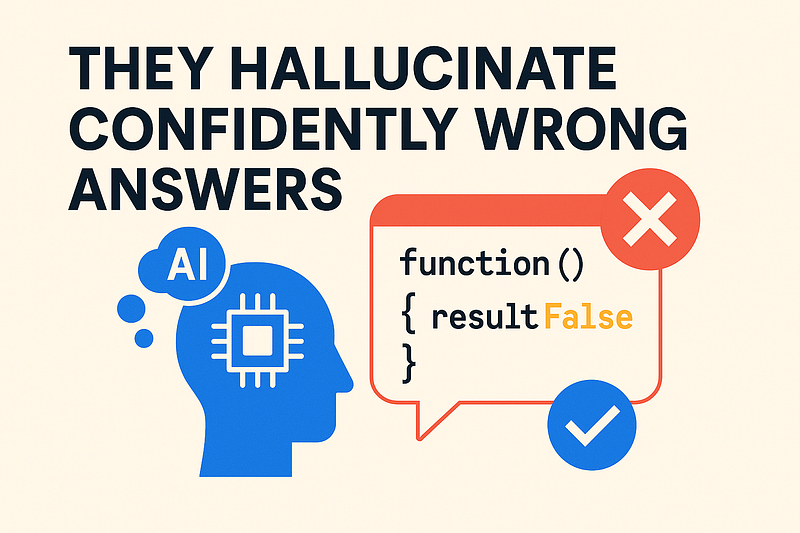Copilot, ChatGPT, and friends are great — but they’re not as magical as they seem.

Introduction: The Hype vs. Reality
AI coding assistants are everywhere. GitHub Copilot, ChatGPT, Codeium, Tabnine — they promise to autocomplete your thoughts, fix bugs instantly, and make you 10x faster. And sometimes, they deliver.
But here’s the part nobody likes to talk about: AI coding assistants have blind spots. They aren’t omniscient pair programmers. They make mistakes, ignore context, and even create new risks you didn’t have before.
If you rely on them without knowing their limitations, you’re setting yourself up for hidden bugs and false confidence. Let’s uncover the five surprising limitations that most developers don’t realize until it’s too late.

1. They Hallucinate Confidently Wrong Answers
AI doesn’t know — it predicts. That means it can generate code that looks flawless but is subtly wrong.
- A Copilot suggestion might compile but return incorrect results.
- ChatGPT may confidently explain why an invalid regex works.
👉 Why it matters: False confidence is worse than no help at all. Beginners especially may copy-paste without catching errors.
Fix: Treat AI suggestions as drafts, not truth. Test, review, and debug like you would with code from Stack Overflow.

2. They’re Behind on New Tech
Most AI models are trained on historical code, not bleeding-edge releases.
- Ask about a brand-new React hook or Python feature, and AI may give outdated examples.
- Even worse, it may “hallucinate” APIs that don’t exist.
👉 Why it matters: Following AI blindly can lock you into obsolete practices.
Fix: Cross-check with official docs before adopting new syntax or APIs suggested by AI.

3. They Don’t Understand Business Logic
AI knows patterns, not your product’s rules.
- It can generate a generic login function, but it won’t know that your app requires MFA, rate-limiting, or domain-specific validation.
- It might suggest shortcuts that violate compliance (HIPAA, GDPR).
👉 Why it matters: AI can’t enforce your company’s unique requirements.
Fix: Use AI for implementation details, not architectural or domain decisions.

4. They Can Introduce Security Holes
AI often ignores best practices for security:
- Writing SQL queries without parameterization.
- Hardcoding API keys.
- Skipping input validation.
👉 Why it matters: One copy-paste could introduce critical vulnerabilities into production.
Fix: Run linters, security scanners, and code reviews on AI-generated code. Never assume AI knows security.

5. They Struggle with Large Contexts
AI assistants work best when they can “see” your code — but context windows are limited.
- Copilot mostly looks at the file you’re editing.
- ChatGPT may miss dependencies across files or repos.
👉 Why it matters: AI may generate code that ignores your existing architecture or duplicates logic.
Fix: Provide explicit context in prompts — paste relevant snippets, describe dependencies, and guide AI toward the right solution.
Conclusion: Use AI Wisely, Not Blindly
AI coding assistants are powerful — but only if you know their limits. They:
- Hallucinate code.
- Lag behind new tech.
- Miss your business rules.
- Can create security risks.
- Don’t scale across large projects.
Think of AI as a junior developer: fast, enthusiastic, but error-prone. It needs supervision, testing, and guidance.
Call to Action
Have you been burned by one of these limitations? Share your story in the comments — the more we talk about the real side of AI coding, the smarter we’ll all get.


Leave a Reply